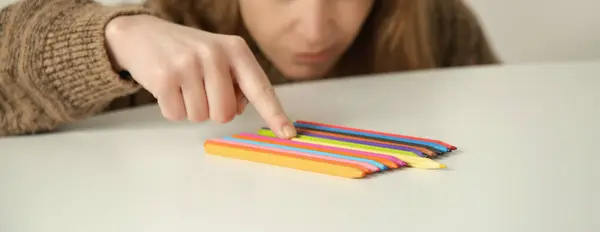Understanding and Supporting Your Partner with OCD: Three Key Steps
Living with obsessive-compulsive disorder (OCD) is challenging, not just for those diagnosed but also for their partners.
When you love someone who battles with OCD, it can be tough to navigate the complexities of their condition. However, understanding their experiences and offering the right support can strengthen your relationship and foster a more compassionate environment. Here are three essential steps to consider when dealing with a partner who has OCD.
Educate Yourself
Knowledge is power.

The first step in supporting your partner is to educate yourself about OCD. This isn’t just a quirky habit; it’s a significant mental health disorder characterized by intrusive thoughts (obsessions) and repetitive behaviors (compulsions) that individuals feel compelled to perform. It’s crucial to understand that their compulsive behaviors aren’t just annoying quirks, but coping mechanisms that help relieve anxiety.
Take the time to read articles, watch documentaries, or attend workshops about OCD. Understanding what your partner goes through will allow you to respond with empathy rather than frustration. Moreover, knowing the triggers and common symptoms of OCD can prepare you for when they experience heightened anxiety or compulsive urges.
Remember, your goal is to be supportive and reduce any anxiety in the relationship, not to “fix” them.
Communicate Openly
Once you have a foundational understanding of OCD, it’s important to establish open lines of communication with your partner. Encourage them to share their experiences and feelings with you.

Approach these conversations gently and without judgment. For many people with OCD, it can be challenging to articulate their struggles, but your willingness to listen can make all the difference. Ask questions like, “How do you feel when your OCD kicks in?” or “What can I do to help you during those moments?”
Be prepared for these conversations to be emotional and even raw. It’s vital that your partner feels safe and supported in expressing their feelings. They may not always want to talk about their OCD or may not know how to express their experiences in words.
In those moments, reassure them that you are there for them, not just during the hard times but also in everyday moments.
Be Patient and Set Boundaries
Patience is key when supporting a partner with OCD. Understand that recovery is a journey filled with ups and downs. There will be good days and bad days, and your support will play an essential role in helping your partner navigate this journey.

Celebrate their successes, no matter how small, and be there to lift them up during setbacks.
At the same time, it’s crucial to set healthy boundaries. While supporting your partner is commendable, you also need to take care of your own mental health. It’s okay to express when certain compulsions affect you or your daily life. Discuss ways to cope together, such as finding activities that allow you both to relax and enjoy each other’s company away from the stressors of OCD.
In conclusion, here is a bit of take-away. Dealing with a partner who has OCD requires understanding, open communication, and a balance of support and self-care.
By educating yourself about the disorder, communicating openly, and practicing patience with boundaries, you can create a nurturing environment that fosters growth for both you and your partner. Remember, love and understanding can be powerful tools in assisting your loved one on their journey.






